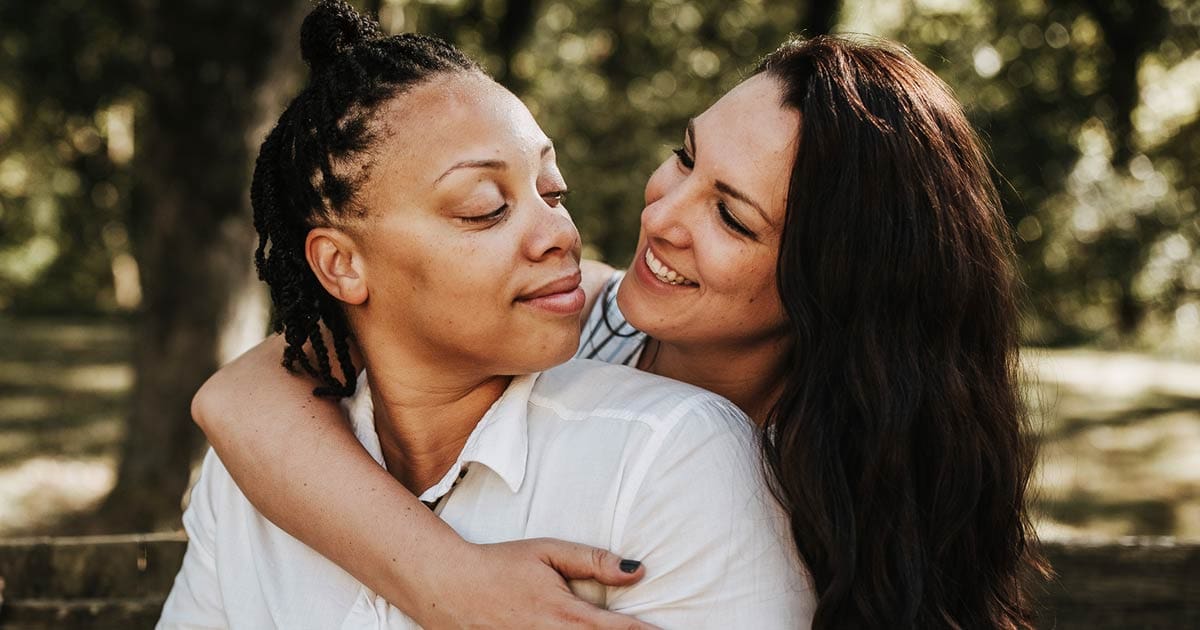Lesbian, Bi & Queer Women Not Always Safe to be Themselves

As the world marks Lesbian Visibility Week (22 – 28 April 2024), a new survey of lesbian, bi, and queer women as well as trans people, mainly from the UK, points to communities that are out and proud but often feel unsafe in their day-to-day lives.
The findings come from The DIVA Survey: Catalysing Change, conducted by Kantar for Lesbian Visibility Week. The survey collected data from 2101 respondents across the UK, USA, India, and South Africa.
This survey provides deep insights into the lives and experiences of LGBTQ+ people and allies across the globe. It found that, across the four countries, the vast majority of respondents are open about their sexual orientation (89%) and gender identity (80%) with their close friends, but they don’t always feel safe.
The survey found that:
- Only a fifth (20%) of LBQ+ women and trans people in the UK feel ‘very safe’ in gyms and leisure centres. Over half (52%) feel ‘somewhat safe’ or ‘quite safe’, and 6% don’t feel safe at all.
- Only 13% of LBQ+ women and trans people in the UK feel ‘very safe’ using public transport. More than two-thirds (69%) feel ‘somewhat safe’ or ‘quite safe’, and 6% don’t feel safe at all.
- Only 11% of LBQ+ women and trans people in the UK feel ‘very safe’ in bars and nightclubs. Two-thirds (66%) only feel ‘somewhat safe’ or ‘very safe’, and 7% don’t feel safe at all.
- And things aren’t any better in the virtual world. Only 10% of LBQ+ women and trans people in the UK feel ‘very safe’ on social media, while 59% feel ‘somewhat safe’ or ‘quite safe’, and 10% don’t feel safe at all.
This new data comes after a decade of rising hate crime targeting people because of their sexual orientation and gender identity: between 2013 and 2023 homophobic and biphobic hate crimes in England and Wales rose by 465%, and transphobic hate crimes rose by a staggering 1,211% (Police Recorded Hate Crime, ONS). It also comes amid widespread concern about rising anti LGBTQ+ online hate.
The researchers said that these findings are reflected across the other countries studied: in the UK, USA, India, and South Africa. While the majority of LBQ+ women and trans people reported feeling safe in day-to-day settings, a significant minority feel unsafe. Feelings of unsafety are particularly common amongst trans and non-binary respondents.
“Lesbian Visibility Week is about celebrating and uplifting our community, so it’s wonderful to see so many LBQ+ women and trans people in the UK living our lives out and proud,” said Nancy Kelley, Director of Lesbian Visibility Week.
“But visibility should never come at the cost of safety. It is unacceptable that in 2024 so many LBQ+ women and trans people in the UK feel still unsafe, and it’s unacceptable that they have a good reason for feeling the way they do. From our neighbourhoods and our high streets to our online world, something must change.”
This year, the study also delved into the experience of allies for the first time. Interestingly, the experiences of allies often mirror those of LGBTQ+ people themselves, with 67% of allies reporting that they feel safe in bars/clubs (compared with 72% of LGBTQ+ respondents) and 23% of allies reporting that they don’t feel safe on social media (compared with 20%).
Leave a Reply